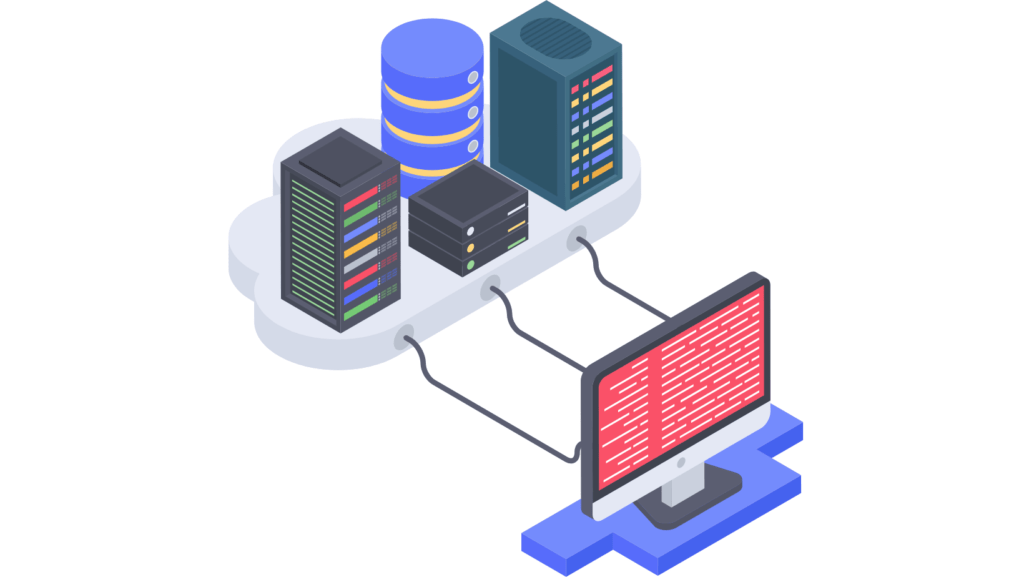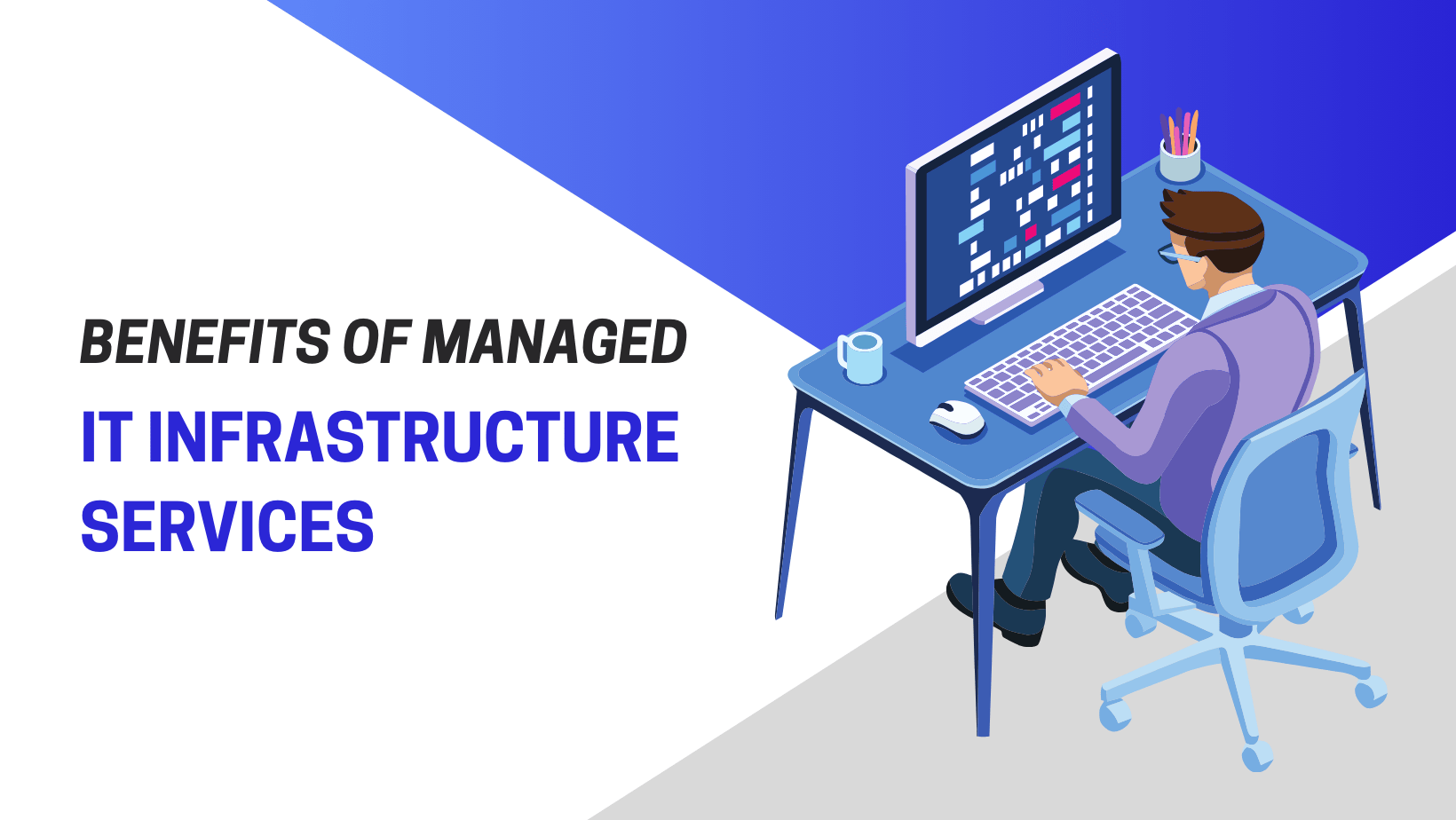Top Benefits of Managed IT Infrastructure Services for Business Efficiency
IT infrastructure is essential for businesses to function effectively in today’s digital environment. However, managing this infrastructure presents many challenges, as it demands constant attention, specialized skills, and ongoing maintenance. Managed IT Infrastructure Services (MIS) provide a practical solution by allowing businesses to outsource the management of their IT systems to expert providers. This not only helps in enhancing operational efficiency but also reduces costs and allows companies to concentrate on their main business functions. In this blog, we’ll look at the main advantages of Managed IT Infrastructure Services and why they make sense for organizations of any size.
What Are Managed IT Infrastructure Services?
Outsourcing an organization’s IT infrastructure services management to a third-party vendor is referred to as managed IT infrastructure services. The administration of servers, storage, networks, hardware, software, and other crucial IT systems is often included in these services. Service providers make sure that everything functions properly by keeping an eye on, supporting, and maintaining the infrastructure. This frees up companies from having to spend time on routine IT maintenance and more time on expansion and innovation.
Improved IT Budgeting
Managed IT Infrastructure Services help businesses manage their IT expenses more effectively. Instead of dealing with the high costs of maintaining an in-house IT team including salaries, hardware purchases, and keeping up with software updates—businesses can opt for a more affordable option by outsourcing. Managed service providers give companies access to skilled IT experts without the extra overhead costs.
Additionally, these providers offer flexible pricing, meaning businesses only pay for the services they actually need. This approach eliminates unnecessary spending and allows for a predictable monthly budget, making financial planning simpler. Companies also avoid large upfront investments in IT infrastructure services and can use their resources more efficiently.
Access to Expertise and Advanced Technology
Managed IT Infrastructure Services provide businesses with access to a team of highly skilled professionals who specialize in managing IT systems. These experts are trained to handle a wide range of infrastructure-related tasks, from routine maintenance to complex troubleshooting. Instead of relying on a limited in-house team, businesses can benefit from the knowledge and experience of a dedicated group of professionals.
In addition to expertise, MIS providers offer access to advanced technology. Service providers often use the latest tools and technologies to monitor and manage infrastructure, ensuring optimal performance. Businesses may find it challenging to invest in cutting-edge technology themselves, but partnering with an MIS provider gives them access to these resources without the high upfront costs.

Enhanced Security
Security is a top priority for businesses of all sizes. With cyber threats on the rise, protecting sensitive data and systems is more important than ever. Managed Infrastructure Services help enhance security by implementing robust security measures, monitoring systems for potential threats, and providing regular security updates.
Managed IT Infrastructure Services providers identify and stop malware, cyberattacks, and other security threats using cutting-edge technologies. Additionally, they guarantee that companies abide by industry norms and rules, which lowers the possibility of data breaches and penalties. Businesses may respond to security threats more rapidly and minimize the possible impact on their operations by implementing continuous monitoring.
Improved Efficiency and Uptime
Managed IT Infrastructure Services ensure that a company’s IT systems are always running at peak performance. Service providers monitor infrastructure 24/7, identifying and addressing issues before they cause disruptions. This proactive approach helps to minimize downtime and ensures that systems remain operational.
With Managed Infrastructure Services, businesses can also benefit from faster response times when issues do arise. Since service providers are dedicated to managing IT infrastructure, they can quickly resolve problems, reducing the amount of time systems are offline. This leads to improved efficiency, increased productivity, and less time wasted on technical issues.
Scalability and Flexibility
As businesses grow, so do their IT needs. Managed IT Infrastructure Services offer the flexibility to scale IT infrastructure as needed. Whether a business is expanding rapidly or experiencing slower growth, MIS providers can adjust services to meet changing demands. This means companies can easily add or remove resources, such as servers, storage, or network capacity, without investing in expensive hardware.
Additionally, MIS’s scalability makes firms more flexible. They know that their infrastructure can be readily modified to support their expansion, so they can swiftly adjust to changes in the market or internal needs.
Focus on Core Business Activities
One of the biggest advantages of outsourcing IT infrastructure management is that it allows businesses to focus on what they do best. Managing IT infrastructure can be time-consuming and distracting, especially for businesses without dedicated IT staff. By outsourcing this responsibility to a managed service provider, businesses can concentrate on their core operations, such as product development, customer service, and growth strategies.
This also leads to better decision-making, as businesses can rely on experts to manage IT while they focus on strategic initiatives. With less time spent on managing infrastructure, companies can invest more time and resources into areas that drive revenue and competitive advantage.
Access to Continuous Support
Managed IT Infrastructure Service providers offer ongoing support for businesses, ensuring that help is available whenever it is needed. Whether it’s a minor issue or a major system failure, businesses can count on their service provider to resolve the problem quickly and efficiently.
Many Managed Infrastructure Service providers offer 24/7 support, giving businesses peace of mind that their infrastructure is always being monitored. This continuous support reduces the risk of extended downtime, allowing businesses to operate smoothly without worrying about IT issues interrupting their operations.
Proactive Maintenance and Monitoring
Proactive maintenance is one of the key features of Managed Infrastructure Services. Service providers continuously monitor infrastructure to identify potential issues before they cause problems. This includes checking for hardware failures, software glitches, or network bottlenecks. By catching these issues early, MIS providers can prevent them from escalating into bigger, more costly problems.
In addition, regular maintenance is performed to keep systems up-to-date and running efficiently. This includes installing software updates, applying patches, and ensuring that all components are working together seamlessly. Proactive maintenance helps to avoid disruptions and ensures that IT infrastructure is always performing at its best.
Compliance with Regulations
Many industries have strict regulatory requirements that businesses must adhere to, especially when it comes to data protection and privacy. Managed IT Infrastructure Services help businesses stay compliant with these regulations by ensuring that their IT systems meet all necessary standards. Service providers are well-versed in industry-specific regulations and can help businesses avoid costly fines or legal issues by maintaining compliance.
MIS providers also assist with audits and reporting, making it easier for businesses to demonstrate their compliance efforts to regulators. This reduces the burden on internal teams and ensures that businesses can focus on their core activities without worrying about regulatory challenges.
Disaster Recovery and Business Continuity
Disasters, whether natural or technical, can strike at any time and severely disrupt business operations. Managed Infrastructure Services help businesses prepare for these scenarios by implementing robust disaster recovery and business continuity plans. These plans ensure that, in the event of a disaster, businesses can quickly recover their data and resume operations with minimal disruption.
MIS providers offer backup solutions, data replication, and failover systems that allow businesses to continue operating even if their primary infrastructure is compromised. This reduces the risk of data loss and ensures that businesses can maintain operations, even in the face of unforeseen challenges.
Conclusion
Managed Infrastructure IT Services provide significant advantages for businesses aiming to enhance the efficiency, security, and scalability of their IT systems. Outsourcing infrastructure management to experienced providers like Agrius IT helps companies reduce costs, gain expert support, and ensure their IT infrastructure operates at peak performance. Agrius IT offers comprehensive services that encompass the management of servers, networks, storage, and other crucial IT systems, allowing businesses to focus on their core activities.
With Agrius IT’s skilled professionals, businesses can achieve smooth operations, improved security, and lower costs. The continuous support, proactive maintenance, and flexible solutions offered by Agrius IT ensure that IT infrastructure remains reliable and efficient. Partnering with Agrius IT provides a practical and effective approach to managing IT infrastructure in today’s competitive environment.
Frequently Asked Questions
Managed Infrastructure Services involve outsourcing the management of a company’s IT infrastructure, including hardware, software, networks, and servers, to a third-party provider. This allows businesses to focus on their core operations while experts monitor and maintain their IT systems.
By outsourcing IT management, businesses save on hiring and training an in-house IT team, purchasing hardware, and maintaining software licenses. Managed service providers offer flexible pricing models, allowing companies to pay only for the services they need, leading to significant cost savings.
MIS providers enhance security by monitoring systems 24/7, implementing robust security measures, and regularly updating security protocols. This proactive approach helps detect and prevent cyber threats while ensuring compliance with industry regulations, reducing the risk of data breaches.
Yes, MIS providers offer scalable solutions that allow businesses to adjust their IT resources based on growth or changing needs. Whether adding or removing servers, storage, or network capacity, MIS ensures infrastructure can grow or shrink with the business.
MIS providers implement disaster recovery plans, including backup solutions, data replication, and failover systems. In the event of a natural or technical disaster, these plans ensure businesses can quickly recover their data and resume operations with minimal downtime.



